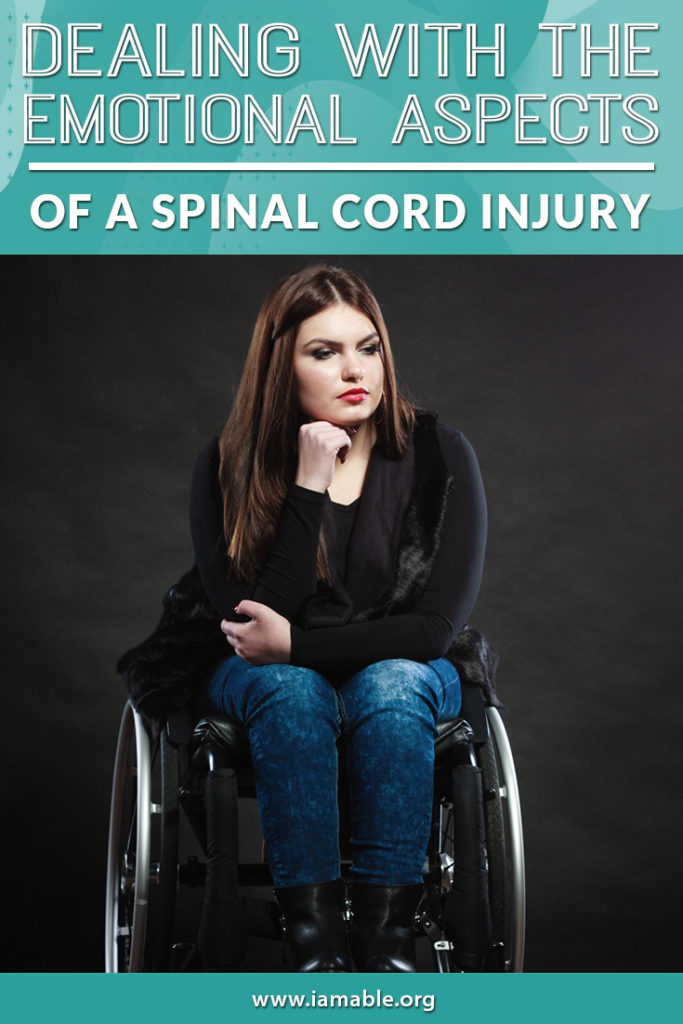Miami, FL 33186

As challenging as the physical effects of a spinal cord injury can be, there are also emotional aspects to cope with. For most people, an SCI means that life will never be the same, but that doesn’t have to mean things are bad – just different. Here are seven ways that you can deal with the emotional side of a spinal cord injury.
A “fake it ‘til you make it attitude” isn’t going to get the majority of people through this type of trauma. It’s okay to grieve over the sudden changes to your life and the challenges that lie ahead. Refusing to acknowledge your feelings may make them worse or cause them to come out in unexpected ways (such as sudden outbursts of anger). Remember that those emotions will become easier to deal with as you begin your recovery and learn to accept aspects of the injury that you can’t change.
Hobbies are a fulfilling aspect of life. But what if you can no longer take part in some of your favorite hobbies from before the injury? This can make it even tougher to deal with your new circumstances. There are two ways to address this particular aspect of an SCI and regain some joy.
Another way to take control of the situation is within an exercise prescription for spinal cord injury recovery. Exercise isn’t just essential for your physical health. Physical activity produces endorphins that make us feel good. So be sure to stay active daily, doing what you can according to your new circumstances. The health benefits of exercise can also improve your mental outlook by making you feel a little better physically.
If you are more familiar with the saying “you are what you eat,” this has a similar meaning. What you eat is going to affect how you feel. A healthy diet that contains the proper nutrients is going to equip you to deal your best with difficult emotions. A diet that is high in processed foods, refined sugars, and fried foods can negatively affect your mental state.
It is normal to experience post-traumatic stress as well as anxiety or depression following an SCI. There is nothing wrong with discussing these feelings with your doctor. It may be best to spend some time with a therapist. You may even require medication to help regulate your emotions. These may be temporary measures that can end when you begin to accept your new circumstances better. For other patients, these may be long-term medical interventions to help regulate your emotions.
According to the National Spinal Cord Injury Statistical Center, about 17,700 people survive with SCIs each year. This means that you are far from alone, even if you feel like no one in your inner circle can understand what you are going through. The solution may be to expand your circle by joining a support group for spinal cord injury survivors. This will give you the chance to connect with people who understand your situation. You may also encounter individuals who are already improving emotionally following a spinal cord injury, and they can share some helpful tips that work in practical ways.
Focusing on your recovery can give you something to occupy your mind so that it doesn’t drift toward negative thoughts. While rehab goals can take a long time to reach, setting smaller markers along the way can help you to see your progress. Don’t forget to get an outsider’s view from time to time. While your progress may seem to move inches at a time for you, someone whom you don’t see every day may notice a massive difference in your regained ability since your last encounter.
After a spinal cord injury, life is never the same. However, that doesn’t mean it has to be bad, just different. At iAM ABLE, we are committed to helping patients accept their new reality and work hard to maximize their independence. One of the ways that we do this is through our eBook entitled 7 Unbelievably Important Steps to Take to Thrive after Paralysis. The purpose of the book is to help you accept your new circumstances as rapidly as possible, thereby allowing you to take command of your situation in a way that can’t happen if there is any denial still remaining.
From helping you start challenging yourself to reaching your long-term goals, iAM ABLE is here with you every step of the way. Download the eBook today, and contact our Miami-based facility to learn more.
Grab our free e-book 7 Unbelievably Important Steps to Take to THRIVE after Paralysis by clicking the image below.
